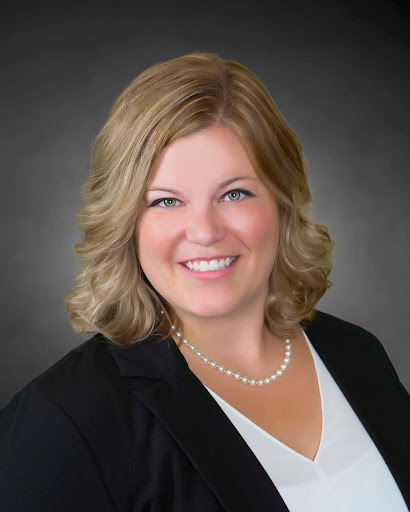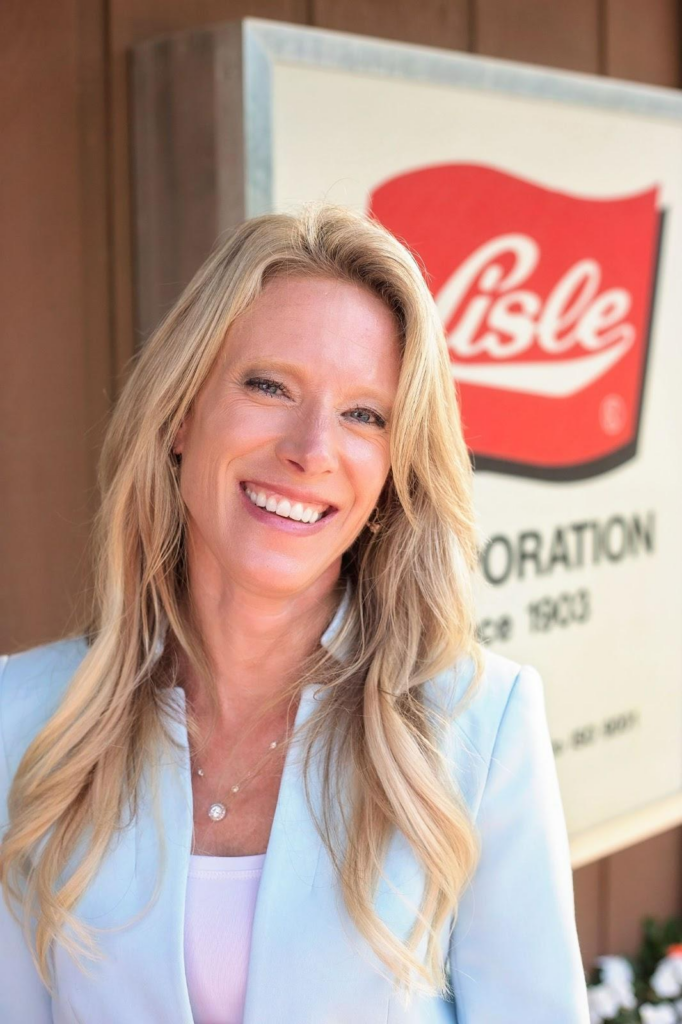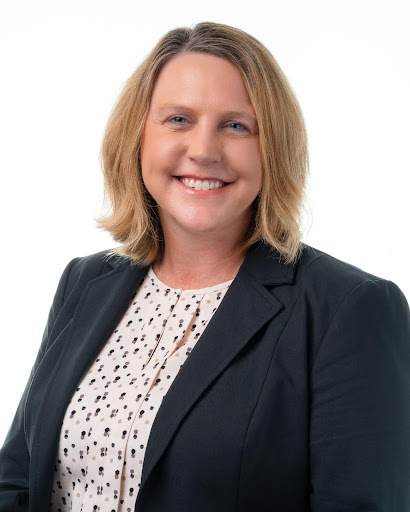By Katie Kreis, communications and marketing coordinator, UNI Family Business Center
Family business transcends any one industry — farmers, manufacturers and IT specialists all often find themselves working with their parents, spouses, cousins, siblings and children. This can create friction that not every family is equipped to handle, and some have a tough time balancing business and family when both are often in the same room. In addition, a lot of these family-owned businesses are in male-dominated fields.
According to a 2018 study by EY Global, only 9% of family businesses have a woman in a top leadership role and 24% have women in executive leadership positions. Leadership was historically passed from a father to a male heir, but KPMG found that family businesses are now creating succession plans driven by merit, capability and willingness instead of gender or kinship.
Opportunities are opening up for women in family-owned businesses, and the University of Northern Iowa Family Business Center sought out women in these spaces who were willing to share their experiences. What follows are eight vignettes from women in all corners of Iowa who are leading from where they are and encouraging you to do the same.
Megan Weiler Green

Megan Weiler Green is counsel and engineering manager and a second-generation family member at Weiler Inc., a paving equipment manufacturer in Knoxville.
“You can support women by allowing them to define what their limits are going to be. A lot of people try to do the right thing when supporting women in the workplace, at times shielding them from after-hours work or travel, but I think it’s important to trust women to make their own decisions and decide what’s best for their situation. Women also need to hold up their end of the bargain: If you want the opportunity, be available for it. If it’s not a good fit, be honest with yourself, define your terms and ask for what you need.
“The barriers I’ve faced as a woman in family business are often self-imposed. My background is as a lawyer and I used to feel that it was the only way I could add value to the company, but my dad told me I could add more. The same with my siblings, who, on the surface, you’d think maybe their backgrounds don’t fit with the business. But we’ve been allowed to experiment and expand our skill set to take on responsibilities that we didn’t see possible at first. We’ve approached those opportunities with humility and with the expectation that we would make mistakes, we’d own up to them and we’d be better next time.”
Rep. Shannon Latham

Wife. Mother. Entrepreneur. These are just three of the titles that Shannon Latham holds. She also serves District 55 in the Iowa House of Representatives and is co-owner/vice president of Latham Hi-Tech Seeds in Alexander. Shannon helped her husband, John, launch a traited seed corn business in 2004. Five years later their company purchased Latham Seed Co., which only sold soybeans, and began doing business as Latham Hi-Tech Seeds. Today Shannon, John, and John’s brother, Chris, are third-generation owners of a company that offers seed corn, soybeans and alfalfa to farmers across the Upper Midwest.
“As a female owner of a family business, I bring a different perspective to the table. I know what it’s like to juggle child care and work meetings. Before I joined our family business, I sometimes had to take an extra day of vacation to drive my children to my parents’ place so I could travel. When I joined Latham Seeds, I looked for ways to bring families together. For example, we provide activities for spouses and children while Latham dealers are attending our annual meeting. Spouse is no longer defined as a woman, and we let spouses decide how they wanted to balance their roles as parents and business partners.”
Latham said she also challenged the status quo in the workplace. When she asked why something was done a certain way, she didn’t accept “because that’s the way we do it” for an answer.
“I have been fortunate to have great mentors throughout my career, who encouraged me to raise questions and offer ideas. It’s important to surround yourself with colleagues and friends who will lift you up and help you succeed. As the saying goes, ’empowered women empower women.’ I also believe strong men champion strong women. I am blessed to have these types of people in my life.”
Mary Landhuis

Mary Landhuis is president of Lisle Corp., a five-generation tool manufacturing company in Clarinda.
“When I first got started managing, I could see people had self-doubt when it was time to start having conversations about promotions. They need to know that you believe in them and have confidence in what they can do. That’s something I take very seriously. In whatever field you work, it’s important to completely reject gender-related job stereotypes. Any hire should always be who is best for the job. You just look at the skill set needed, pick that person and help develop them in that role. It’s my job to help mentor people along the way.
“My advice to women is to always be growing and learning. It’s good to be happy with what you’re doing but always push yourself a little bit. Remember that you never want to be stagnant and sedentary with anything you do. It’s an attitude that I’ve always had and it has meant different things at different times in my life. I think it’s important for everyone to have confidence and to push themselves. Don’t be afraid of new opportunities where you don’t have a long-term base of knowledge. Just make the time to learn and grow and always be curious.”
Emily Schmitt

Emily Schmitt is chief administrative officer, general counsel, and a member of the third generation of family leadership at Sukup Manufacturing Co. in Sheffield.
“I’ve witnessed the growth and evolution of Sukup from a young age. Being a part of a family business has allowed me to work alongside long-term employees and build relationships with them. I started as corporate counsel and worked my way up to CAO and general counsel, a promotion that meant a lot to me as it was based on my own merits and hard work. Gaining the respect of the former plant manager who I interacted with since I was a child was one of my major accomplishments because he’s such a mainstay outside of the family. In family businesses, titles often do not reflect the responsibilities one has, and I took on the HR and finance departments without necessarily holding those titles. Now, as CAO, I oversee several departments, which keeps my work creative and varied.
“Mentorship has been critical for my growth, and I’ve been fortunate to have had many great mentors. In family businesses, there can be a barrier to sharing information and communicating effectively, but we have made it a priority to break down those barriers and share information more openly. Not holding titles is good to give opportunities to non-family members to lead as well. Intentional effort is essential to making progress in areas like women’s advancement in family businesses, and we need to be open to change and willing to examine our processes. Peer education groups can help bring women into leadership roles, and addressing issues like child care and part-time work can also support women’s advancement. In family businesses, relationships are crucial, and we should not be afraid to reach out to others for support and mentorship.”
Mindi VandenBosch

Mindi Vanden Bosch is the vice president of operations and a third-generation family member of Vermeer Corp. in Pella.
“I always had a plan to come back to Vermeer. After working in manufacturing and various roles in marketing, finance and human resources, I was asked to work outside of the business for three to five years and get an MBA before returning. For me, it was about waiting for the right role. I’ve never felt pushback as a woman in manufacturing, and asking questions and respecting others’ expertise is important. My mom was CEO, so there may have been fewer barriers for me because the company was already comfortable with female leadership.
“Balancing work and family was my biggest challenge, but having a mentor helped me navigate it. I worked part time when my children were younger and eventually transitioned back to full time. While that may have limited me a bit, I was able to work with my managers to find a solution where we were both happy. We need to provide flexibility and get everyone excited about their work, especially in industries like manufacturing where it’s more difficult to provide flexibility with direct work.
“You don’t have to be the expert when you’re a business leader, but you must have expertise on your team. Focus on your strengths and be comfortable with who you are while looking for opportunities to grow and be open to different roles.
“Our governance at Vermeer is important, especially because of the structure it provided me while I was growing up. We have a specific employment policy for family members to work outside of the company before working at Vermeer that I knew about when I was in middle school. If that policy had been put in place when I was about to graduate college or I hadn’t known, it would have been emotional and made the process more difficult. That structure is essential.”
Heather Bruce

Heather Bruce is the fifth-generation president and CEO of Osmundson Manufacturing Co. in Perry.
“In my family’s business, each generation hoping to buy the business had to work through a contingency plan. When my father expressed interest in pursuing this, my grandfather wanted him to go to college first. My father wanted me to go to college, earn my master’s degree, and work for a different company for at least two years. That was my plan, and it worked out that my siblings had different goals so that I could step up to the challenge. I was in Pittsburgh working and completing my degree when things changed. My father wanted to retire sooner than expected, and we learned that my husband was getting deployed in six months. We saw the opportune timing and decided to expedite the transition process.
“When I first started, it was hard to earn respect and build my own reputation outside of being the boss’s daughter. I appreciate that I was introduced to manufacturing and the family business at an early age. The sooner you are exposed to the business, the better you’ll understand it. And aside from that, being confident and having a drive to come to work will get you promoted time and time again. I love manufacturing, and I love people – that is the beauty of running a family business where we take care of each other. We have a network of great people here who help raise our kids, and we try to have enough flexibility for working parents to support their families too.
“My advice to women in family businesses is to be patient. Especially if you are the next generation. It can be beyond painful when you feel ready to take on responsibility and leadership and it hasn’t happened yet, but there’s usually a reason. You just have to find it out, versus thinking you know better.”
Jody Schulte

Jody Schulte is the marketing manager and fifth-generation family member of Jefferson Telecom in Jefferson. She also is chair of the board of directors for WesTel Systems, the family’s telecom business in Remsen.
“After college, I worked outside of the business for a few years. Meanwhile, my husband owned a few businesses and we felt like our daughter was spending more time with a babysitter than a parent. My dad approached me about doing marketing remotely from where I was. I thought about it for a while and talked to other family members who encouraged me to make the leap. It was important to me that I earned that role rather than having it given to me, so I drew on my outside experience to build respect and relatability in the workplace and have been working at Jefferson Telecom for 16 years.
“I believe that the power of networking is truly important. I put myself out there and formed a great relationship with a peer who was a marketer at another telecom business in Iowa. We had a once-a-month Zoom meeting, and it was one of the things I looked forward to the most. Also, through a national telecom group, I was paired up with a general manager of a business in Idaho who is not family but works with a family business. We’ve enjoyed our monthly meetings, and she uses me to get the family perspective as far as how she’s trying to balance board meetings with family members.
“Earlier generations have valuable knowledge and experience, and it’s important to listen to what’s worked, not worked, and ask questions of them. I lean on my dad because he was chairman before I was, for a long time. Oftentimes I bounce ideas off of him to get his perspective. You have to put yourself out there and be involved so that you can have a voice and be at the table.”
Libby Nelson

Libby Nelson is the vice president, general counsel and second-generation family leader of Kemin Industries in Des Moines.
“I always knew I wanted to come back to Kemin, but Kemin was not large enough to have a legal department until I joined in 2001. Before that, my mother handled most of the work that would have been transactional work, using outside counsel to assist. When she decided to slow down, she asked me to come to Kemin. I left my job at the attorney general’s office and joined Kemin as their corporate counsel. Initially, I thought my time would be taken up by HR matters, but I began working on intellectual property matters, real estate, litigation and transactional work along with HR matters. We consolidated all these bits into one department and realized the value of having attorneys on staff. As time passed, my staff grew. Currently, my legal team consists of three attorneys with a fourth joining in June. With our new hire, three of my staff have science degrees and law degrees.
“Thinking about the challenges I faced as a working mom and professional, the most critical for me were consistent child care and good schools. I was fortunate to have flexible work at Kemin and with the state of Iowa. As I have managed my own team, I see huge value in providing flexibility for my team so that we can get our work done but also accommodate work-life balance. Kemin has worked hard to find the right balance between work requirements and life requirements. Kemin started with this philosophy because my mother was required to leave her job in the 1950s when she had her first child. When my mother was setting policy for Kemin, she focused on developing policies that would ensure that Kemin employees were never treated like she was and we continue those policies today.
“Overall, I would say that understanding each of the operational functions and pain points of the company is really valuable in a family business. If you understand how the business works, your contribution will be significant in achieving your personal goals, the family goals and the business goals.”
Learn more about the UNI Family Business Center at unifamilybusinesscenter.com.


